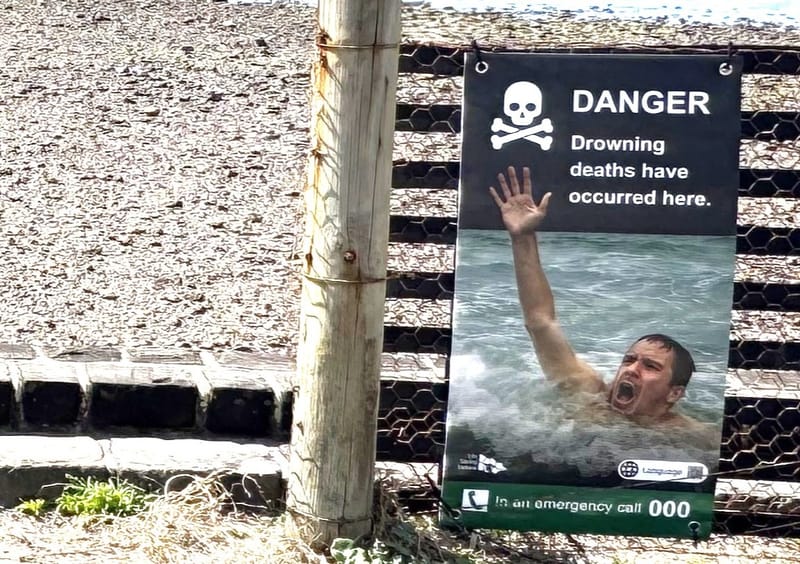Coastal councils working together to smooth climate change adaptation
By Andrew Paloczi SOUTH Gippsland Shire Council was represented at a gathering of 15 Victorian coastal councils in Port Melbourne during May, at which a discussion took place about advocacy priorities in terms of planning an approach to anticipated...

By Andrew Paloczi
SOUTH Gippsland Shire Council was represented at a gathering of 15 Victorian coastal councils in Port Melbourne during May, at which a discussion took place about advocacy priorities in terms of planning an approach to anticipated flooding and coastal inundation.
The Department of Energy, Environment and Climate Action (DEECA), and JLT, which handles local government risk insurance, gave presentations, as did South Gippsland Shire Council, the event led by council in partnership with the Municipal Association of Victoria and JLT.
South Gippsland Shire Council’s Deputy Mayor, Sarah Gilligan, and Director of Future Communities, Lucas Gardiner, gave council’s presentation, with Manager for Planning and Building Services Nick Moore, Director of Sustainable Infrastructure Tony Peterson and Cr Nathan Hersey also present.
“It’s about advocating via our councils, collaborating with each other so that we’re sharing where we’re at and what we’re doing,” Cr Gilligan told the Sentinel-Times of the productive relationship between Victorian coastal councils achieved through such gatherings.
She commented on the productive conversations between local and State Government representatives at the Roundtable.
“We talked about the urgent need for help with legacy planning and vulnerable low-lying communities,” Cr Gilligan said.
The recent Roundtable built on a previous coastal council meeting at Safety Beach during March last year.
Coastal councils want to play a decisive role in determining transition strategies necessitated by climate change but are keen to see a State-led planning approach to prepare for flood and coastal inundation.
Need for sustainable funding for local governments to carry out coastal adaptation actions, and support through improved Disaster Recovery Funding Arrangements are important considerations.
South Gippsland Shire Council, along with other councils continues to argue the merits of being supported to build more resilient infrastructure able to better withstand future natural events, rather than just repairing to the original standard.
Council argues its budget is already stretched to capacity, not allowing for an adequate response to climate change, ageing infrastructure and increasing population, leaving it in a position of being reactive rather than proactive, having to simply rebuild in the event of disasters and not pursue opportunities for improved durability.
Doing nothing is not an option, South Gippsland Shire Council states, stressing planning how to most effectively adapt to climate change requires the involvement of all levels of government, along with community and various agencies.
Council is currently working with the State Government to prepare planning controls, with a focus on minimising risk to life and property from climate hazards.
During council’s May meeting, Cr Gilligan said the DEECA representative tasked with writing the ‘Victorian retreat policy’ attended the coastal councils Roundtable, noting almost $4 million of Federal and Victorian Government funding has been committed to the organisation to carry out that work.
Specifically, that relates to the ‘Transition/Retreat Policy for Property and Assets Impacted by Coastal Hazards and Sea Level Rise’, with the total project cost listed as $3,932,992, of which the State Government is providing $2,404,742, and the Federal Government the remaining $1,528,250.
All of Victoria’s 22 coastal councils are listed in association with the policy.
“So, this was an opportunity to make sure it wasn’t just a list of names and that we weren’t going to get a policy that just said, ‘This is what you do’, that actually the local councils are involved on the ground at the beginning of that policy development,” Cr Gilligan said.
In the description of the policy’s intended purpose, it is stated that local government will be able to draw on it and associated tools to deliver adaptation plans that call for transition away from coastal locations impacted by hazards.
As a Venus Bay resident passionate about the threat of coastal inundation and committed to mitigating it, Cr Gilligan intends to arrange Federal ministerial meetings to discuss planning reform and the need for a national adaptation strategy to more effectively deal with the impacts of climate change.
She will be in Canberra for the Australian Local Government Association’s conference in June and hopes to arrange such meetings for then.





